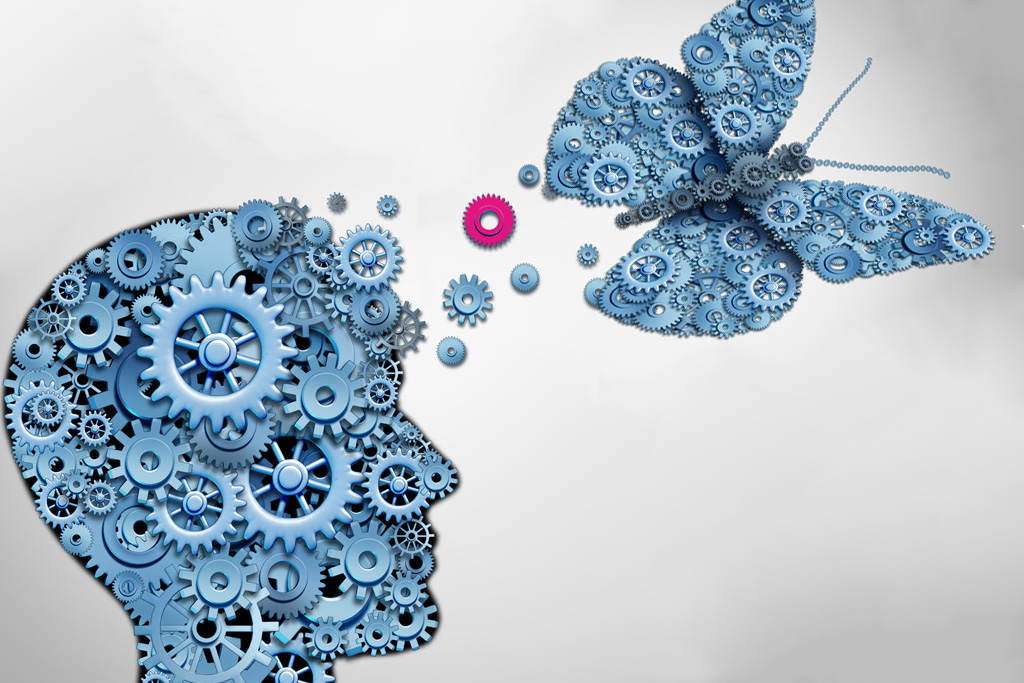Human beings are evolutionary by nature. We have the capacity to continue evolving our thinking to meet growing levels of complexity in our lives. I refer to this as ‘software upgrades’ for the brain, and it is this ability that I rely on when coaching leaders on how to adapt to the changing complexities of their environments.
Take two children; one aged 4 and the other 6. Stood side by side, if you filled two different shaped glasses with the same amount of water (one tall thin glass, the other short and wide), the 4 year old would say the tall glass has more water but the 6 year old would more than likely see that they both have the same amount of water. The 6 year old has had a ‘software upgrade’ in her extra years of life, whereby way she sees the world and her way of thinking has evolved to better meet the complexity in which she now finds herself.
While we physically stop ‘upgrading’ by the age of 21, luckily our minds continue to grow and evolve and can actually rewire to deal with new environments and greater levels of complexity.
How to Evolve Your Thinking
During my training sessions with people, I ask them to reflect on a time when they have had a significant shift in the way they think or see the world. What was going on internally and externally to them before, during and after the shift in thinking. I have seen a very clear pattern emerge around three key areas:
Mindset
There is some great work done by a lady called Carole Dweck. She noticed that the talented kids at school are overtaken by those who work hard. The talented kids know they are talented and therefore they run the risk of switching off to learning. If I’m already good at something then I don’t need to spend any time refining my skill or learning anything. This leads to a fixed mindset. Not good.
A growth mindset on the other hand, is one that moves towards challenges, embracing them, with the aim of constantly learning and evolving. “What can I learn here?” “What is new?” “What is different?”. Having a growth mindset, and not a fixed mindset, dramatically increases the likelihood that you grow and develop your thinking.
Socialisation
An evolution or a shift to a higher level of being actually requires others. Put another way, people grouped together are more likely to learn and evolve than someone in isolation. This part is two-fold.
Firstly there is a socialisation of intent before the learning event; which involves others. The importance of being accountable is a great motivator. If for example you want to get fit, join a fitness group or team sport. Doing so will make it difficult not to turn up to training sessions, as you would be letting the team down.
The other key time socialisation of learning is important is after the event. The actual learning may not take place whilst you are in the midst of the event, but rather afterwards, when you are discussing the event with someone. Together the event can be discussed and analysed and the learnings crystalised.
Oscillation
This leads to the third point of note – learning, deep learning that results in a development of thinking, involves oscillating between doing and reflecting, between being subjective and being objective. Rarely do moments of great insight happen when people are doing the work. Most of the time, the significant shift happens in a rest period where the conscious mind allows the space for the insight to bubble to the surface.
Evolution of leadership
Many leaders in organisations start their working lives like we all do, working on simple problems where there is a clear cause and effect and we can implement a procedure to solve the problem.
They then get promoted into a position of technical expert and are asked to work on more complicated challenges. These challenges might have a cause and effect but the path between the two is not clear … its complicated. Because of their experience they are able to show the way in solving the complicated technical challenge.
Then they get promoted and are asked to become a general manager or a director. The challenges are now complex. There are multiple cause and effects, no clear path between any cause and effect, multiple variables and lots of unknowns. Being a technical expert is no longer going to work. Leaders here need to evolve the way they see the work, the way they think, the way they show up.
If we accept the premise that an organisation cannot grow beyond the level of its leadership then the question now becomes what can a leader do to evolve their own way of seeing the world?
That is a complex question and I do not pretend to have the definitive answer. What I can say is that after talking about this with many hundreds of people, I suspect the path forward involves leaders cultivating a growth mindset, socialising intent and reflection and oscillating between doing and reflecting.
